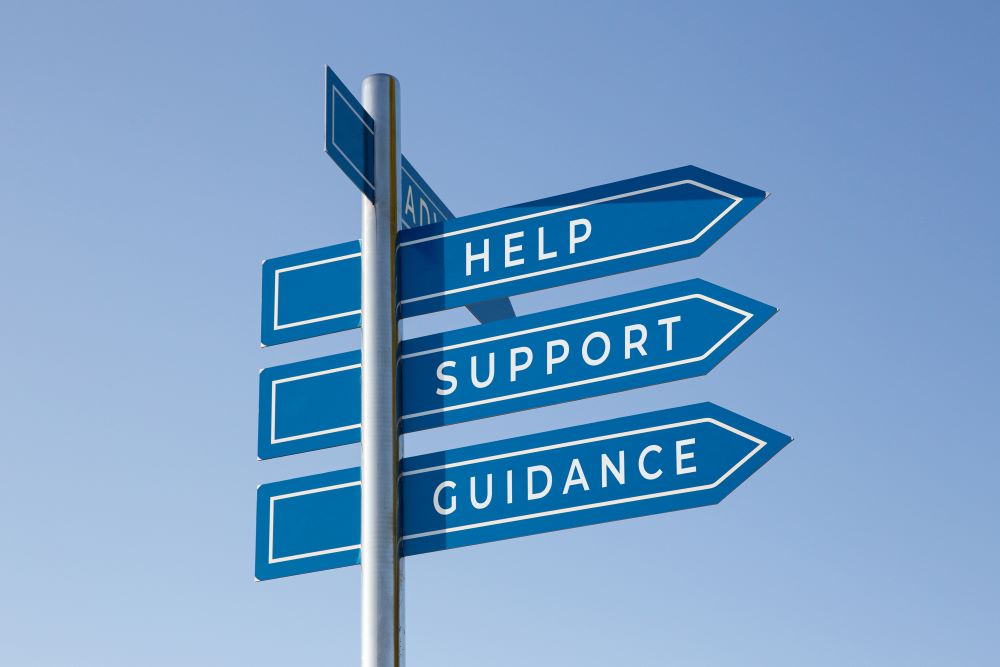Understanding and Overcoming Dementia Caregiver Burnout
Being a caregiver for someone with dementia is a journey filled with love and challenges. It can be tough and rewarding at the same time. Many caregivers give their all, often forgetting to care for themselves. This can lead to something called dementia caregiver burnout. Understanding what it is and how to handle it is important for both caregivers and the loved ones around them.
What is Dementia Caregiver Burnout?
Caregiver burnout is a state of physical, emotional, and mental exhaustion. It happens when you feel overwhelmed and unable to meet constant demands. Imagine trying to carry a backpack filled with heavy rocks. At first, it might seem manageable, but it gets heavier and heavier after a while until you can’t carry it anymore. That’s how burnout feels for many caregivers.
Let’s look at some common symptoms of burnout:
-
Physical symptoms:
You might feel very tired all the time. You might find it hard to sleep, or you might sleep too much. Headaches and body pains can become frequent visitors.
-
Emotional symptoms:
You might feel sad, anxious, or irritable more often. You might lose interest in things you once enjoyed.
-
Behavioral symptoms:
You might start avoiding friends and family or neglect your personal needs. You might also find it hard to concentrate.
Understanding these symptoms can help you spot burnout early.

Causes of Dementia Caregiver Burnout
So, what causes dementia caregiver burnout? There are several reasons:
-
Emotional stress:
Caring for someone with dementia is emotionally draining. Watching someone you love struggle with memory loss and confusion can be heartbreaking.
-
Physical demands:
The job is physically tiring. Helping someone move around, eat, or bathe takes much energy.
-
Lack of support:
When you feel like you’re doing it all alone without help from family or friends, it can be overwhelming.
-
Financial pressures:
Caregiving can be expensive. Worrying about money adds to the stress.
-
Isolation:
Feeling cut off from friends and social activities can make you feel alone.
Each of these factors can add to the load, making it heavier to bear.

Signs and Symptoms of Burnout
Recognizing the signs of burnout can help you take action early. Here’s how to know if burnout is sneaking up on you:
-
Feeling exhausted all the time:
Even after a good night’s sleep, you might still feel tired.
-
Losing interest in activities:
Things that used to make you happy may no longer bring you joy.
-
Changes in appetite or sleep:
Eating too much or too little or having trouble sleeping can be signs of burnout.
-
Frequent illness:
Stress can weaken your immune system, making you more prone to colds and other illnesses.
-
Irritability:
Little things that never bothered you before might start to get on your nerves.
Burnout doesn’t happen overnight. It creeps up slowly. That’s why it’s important to pay attention to these signs.

Preventing Dementia Caregiver Burnout
Preventing dementia caregiver burnout is like putting out small fires before they grow big. Here are some ways to protect yourself:
-
Practice self-care:
Make sure to set aside time for yourself. Take small breaks throughout the day to relax. Even a few minutes can make a difference.
-
Build a support network:
Don’t try to do it all alone. Reach out to family and friends. Ask for help when you need it.
-
Join support groups:
Sharing your experiences with others who understand can be comforting and helpful.
-
Set realistic goals:
Don’t try to do everything perfectly. It’s okay to make mistakes. Do your best and accept that it’s enough.
-
Learn to say no:
It’s important to recognize your limits. Saying no to additional responsibilities can help you manage your workload better.
Remember, taking care of yourself isn’t selfish. It’s necessary. When you’re healthy and happy, you can give better care.

Coping with Burnout
Sometimes, burnout happens despite our best efforts. If you find yourself in this situation, there are ways to cope:
-
Practice relaxation techniques:
Activities like meditation, deep breathing, and yoga can help reduce stress.
-
Exercise regularly:
Physical activity is a great way to release tension. Even a short walk can boost your mood.
-
Get professional help:
Talking to a counselor or therapist can help you work through your feelings.
-
Consider respite care:
Respite care provides temporary relief for caregivers. It gives you a chance to rest and recharge while knowing your loved one is in good hands.

Here’s a story that might help.
Meet Sarah, a loving daughter and devoted caregiver to her dad, who was diagnosed with dementia a few years ago. When Sarah first started caring for her dad, she felt a strong sense of duty and love. She wanted to make sure he was safe, comfortable, and happy. However, as time went on, she found herself feeling more and more exhausted.
Every day was a new challenge. Sarah juggled her job, her family responsibilities, and her caregiving duties. She helped her dad with daily tasks like bathing, dressing, and eating. She also managed his medications and doctor appointments. Sarah loved her dad dearly, but the demands of caregiving started to take a toll on her health and well-being.
Sarah noticed she was feeling tired all the time. Even after a full night’s sleep, she woke up exhausted. She lost interest in activities she once enjoyed, like reading and gardening. Small things began to irritate her, and she felt guilty for not being more patient.
One afternoon, Sarah was at the grocery store when she ran into her neighbor, Linda. Linda could see the weariness in Sarah’s eyes and asked if everything was okay. Sarah hesitated at first, but then she opened up about how overwhelmed she felt. Linda listened and then shared her own experience caring for her husband, who had dementia before he passed away. She suggested that Sarah join a support group for caregivers.
At first, Sarah was hesitant. She wasn’t sure if she had the time or energy to attend meetings. But after some thought, she decided to give it a try. At the support group, Sarah met other caregivers who were going through similar experiences. She listened to their stories and realized she wasn’t alone in her struggles. The group shared tips, offered encouragement, and provided a safe space for Sarah to express her feelings.
With the support of the group, Sarah began to make changes. She learned to set boundaries and say no when she needed to. She started taking short walks in the evening to clear her mind and refresh her spirit. Sarah also reached out to her family and friends, asking for help with errands and occasional caregiving.
Over time, Sarah began to feel more in control. She realized that taking care of herself was just as important as taking care of her dad. By attending the support group and making small changes in her routine, she found a balance that allowed her to provide loving care while also taking care of her own needs.
Today, Sarah continues to care for her dad with the same dedication and love, but she does so with a lighter heart and a more rested mind. She has learned that reaching out for help is a strength, not a weakness, and that self-care is a crucial part of being an effective caregiver.
Sarah’s story is a reminder that while caregiving can be challenging, it’s possible to find support and balance along the way. With a little help and some self-compassion, caregivers can overcome burnout and continue to provide the care and love their loved ones need.
Just like Sarah, you, too, can find ways to cope and regain your balance.

Resources for Caregivers
Knowing where to find help is an important part of managing burnout. Here are some resources that might be useful:
-
Online support communities:
Websites and forums offer a place to connect with other caregivers and share experiences.
-
Books and guides:
Many books offer tips and advice for caregivers. They can provide guidance and support.
-
Local and national organizations:
Organizations like the Alzheimer’s Association offer programs and services to help caregivers.
Having these resources at your fingertips can make a big difference in your caregiving journey.
- Websites: Trusted websites like the Alzheimer’s Association (alz.org) and Dementia Care Central (dementiacarecentral.com) offer a wealth of information, including the latest research, care strategies, and personal stories from other caregivers.

Our Resources
We offer a variety of resources to help you learn more about dementia and connect with others:
- Website: Our website provides detailed articles on various aspects of dementia care, from managing symptoms to legal and financial planning. Find our website HERE.
- YouTube Channel: Our YouTube channel features educational videos on dementia care. These videos are designed to be easy to understand and follow, making them a great resource for beginners. Find our channel HERE.
- Facebook Support Group: Our private Facebook support group is a safe space for caregivers to share their experiences, ask questions, and offer support to one another. It’s a great place to connect with others who are going through similar challenges. Find our Group HERE.

Community Resources
Utilize community resources to find additional support:
- Local Organizations: Many local organizations and non-profits offer support services for dementia caregivers, such as counseling, support groups, and educational workshops.
- Example: Check with your local Alzheimer’s Association chapter for caregiver support groups that meet weekly or monthly.
- Faith-Based Support: If you are part of a faith community, reach out to your church, synagogue, or mosque. Many faith-based organizations offer support services and volunteer programs.
- Example: Your church might have a volunteer group that provides respite care or runs errands for caregivers in the community.
- Online Resources: There are numerous online forums, social media groups, and websites dedicated to supporting dementia caregivers. These can provide a sense of community, practical advice, and emotional support.
- Example: Join a Facebook group for dementia caregivers where you can share experiences, ask questions, and receive encouragement from others in similar situations.
Conclusion
Caring for someone with dementia is a journey filled with ups and downs. Understanding dementia caregiver burnout is the first step in taking care of yourself. By recognizing the signs, preventing burnout, and finding ways to cope, you can continue to provide loving care while maintaining your own well-being.
Remember, you are not alone. Reach out for help when you need it, and take time to care for yourself. You are doing an amazing job, and taking care of yourself is a part of that.
Thank you for being such a dedicated caregiver. Your love and compassion make a difference every day.
Hi, I'm Larea, I am a Registered Nurse specializing in Dementia Care, with 30 years of experience supporting dementia patients and their families. Over the years, I have provided care in diverse settings, including homes, hospitals, nursing homes, assisted living facilities, and hospice. My passion is guiding caregivers, sharing my knowledge and experience to help them navigate the challenges of dementia care with confidence and compassion.











